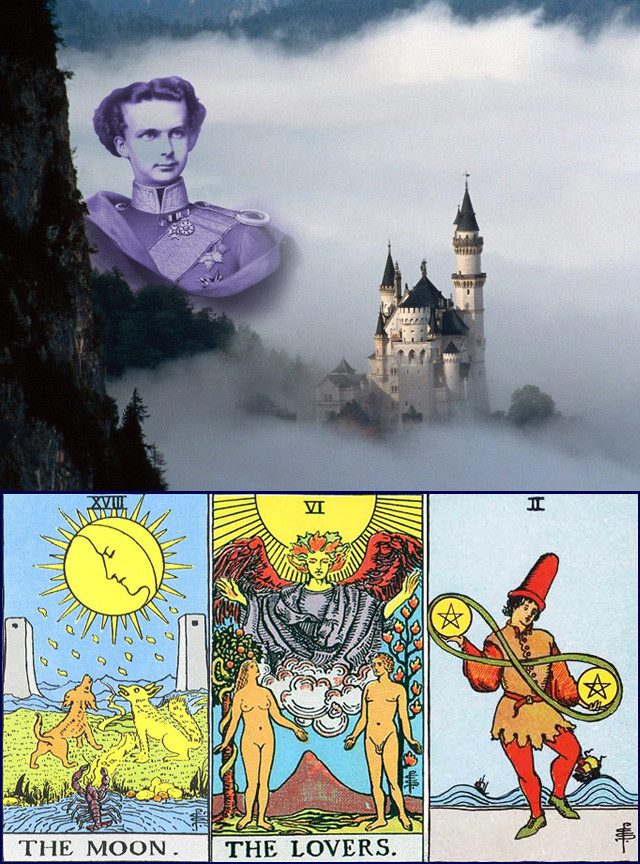 |
Today's Question:
Was King Ludwig II of Bavaria declared insane just days before his mysterious death in 1886?
With hindpsych, the regrettable answer is "yes." On the left side of our striking Tarot spread, the Moon card speaks of Ludwig's vivid imagination and his shadow self. Indeed, Ludwig was famous for his moonlit excursions and night owl schedule. His enemies would have used this card as evidence of chasing after fantasies (at best) and entertaining distorted thoughts.
In the central card, the hands of the lovers don't touch—Ludwig's connection to love isn't through physical union. Rather, a higher ideal (the angel) governs a mountaintop in the clouds—home of Neuschwanstein castle. This card would have reminded Ludwig's enemies of the king's failure to secure an alliance through marriage, not to mention the rumors of the king's homosexuality.
On the right, the young man of the Two of Pentacles skillfully juggles a couple of gold coins. This of course symbolizes the king's playful nature as well as his confident investment in personal projects. His enemies would have used this card as evidence of reckless spending—note the infinity symbol around the coins.
The moon faces left; the juggler of coins faces right; the lovers in the middle don't touch. We see an unmistakable polarity in this spread of cards. Is it evidence of a strong Anima/Animus personality or of mental instability? Ludwig's enemies saw imbecilic dancing in the juggler and heard mad howling from the moonlit wolves. They declared the king insane and deposed him in 1886.
 |
| * Historians must reconstruct the past out of hazy memory. "Once upon a time" requires "second sight." The "third eye" of intuition can break the "fourth wall" of conventional perspectives. Instead of "pleading the fifth," historians can take advantage of the "sixth sense" and be in "seventh heaven." All with the power of hindpsych, the "eighth wonder of the world." It has been said that those who forget the past are condemned to repeat it. Therein lies the importance of Tarot readings for antiquity. When we confirm what has already occurred, we break the shackles of the past, freeing ourselves to chart new courses into the future. |
|



